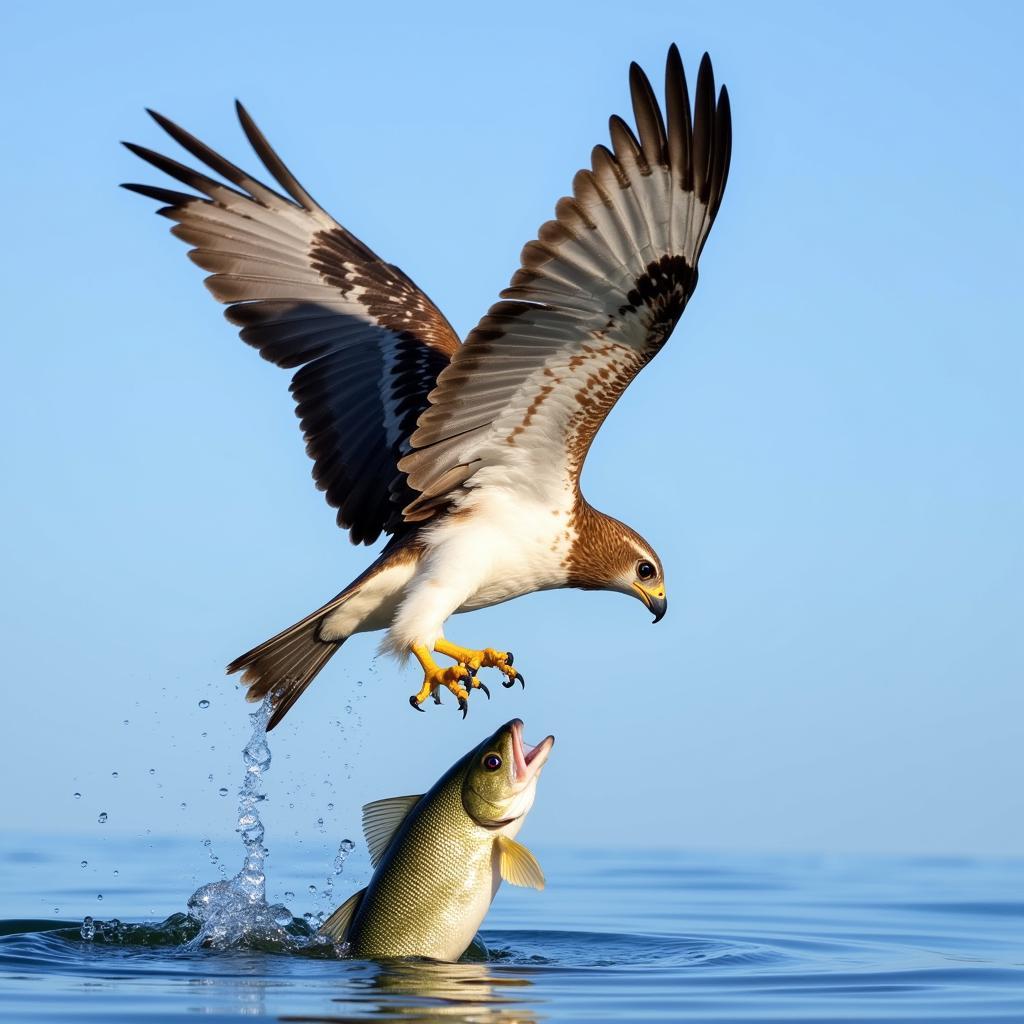Understanding the Term “Pond Hawk”: A Deep Dive
October 27, 2024The term “Pond Hawk” might seem confusing at first glance. It combines two seemingly disparate elements: “pond,” evoking images of serene water bodies, and “hawk,” a bird of prey known for its sharp eyesight and powerful flight. While not a recognized term in standard ornithological dictionaries, “pond hawk” likely refers to the common observation of hawks hunting near ponds. This article delves into the fascinating relationship between these apex predators and their aquatic hunting grounds, exploring the reasons behind this association and the specific hawk species often spotted near ponds.
Hawks and Ponds: A Symbiotic Relationship
Hawks are opportunistic hunters, meaning they’ll capitalize on readily available food sources. Ponds, teeming with diverse life, present a rich hunting ground for these aerial predators. The shallow water and open spaces surrounding ponds offer hawks a clear view of their prey, while the abundance of prey animals ensures a consistent food supply.
 A hawk swooping down to catch a fish in its talons
A hawk swooping down to catch a fish in its talons
Common Hawk Species Found Near Ponds
Several hawk species are frequently observed near ponds, each with unique hunting strategies and prey preferences:
- Red-tailed Hawks: Known for their distinctive reddish-brown tail feathers, these adaptable hawks are often seen perched on high vantage points near ponds, scanning for rodents, snakes, and amphibians.
- Cooper’s Hawks: These agile fliers are well-suited for navigating wooded areas often found around ponds. They primarily hunt small birds, utilizing their speed and maneuverability to pursue prey through dense foliage.
- Sharp-shinned Hawks: Similar in appearance but smaller than Cooper’s Hawks, these raptors also specialize in hunting small birds, often utilizing surprise attacks from concealed perches.
The Importance of Ponds for Hawk Conservation
The presence of hawks near ponds signifies a healthy ecosystem. As top predators, hawks play a crucial role in regulating prey populations, which helps maintain biodiversity and balance within the ecosystem. Protecting ponds and their surrounding habitats is essential not only for hawks but for the countless other species that rely on these valuable water bodies.
Conclusion
Observing a “pond hawk,” though not a scientifically recognized term, offers a glimpse into the fascinating interplay between predator and prey. It highlights the vital role ponds play in supporting diverse wildlife, including these majestic birds of prey. Understanding and appreciating these relationships fosters a deeper connection with the natural world and underscores the importance of conservation efforts.
FAQs
1. What do pond hawks eat?
Pond hawks, depending on the species, typically feed on a variety of prey found near ponds, including fish, frogs, snakes, rodents, and smaller birds.
2. Are pond hawks dangerous to humans?
Pond hawks generally pose no threat to humans. They primarily focus on hunting prey much smaller than themselves and tend to avoid human interaction.
3. What time of year are pond hawks most active?
Pond hawks are typically active year-round in areas where they are non-migratory. However, their activity might be more pronounced during breeding season or when prey is abundant.
4. How can I attract hawks to my pond?
Creating a hawk-friendly environment around your pond involves providing suitable perching sites, such as tall trees or posts, and ensuring a healthy population of prey animals.
5. What should I do if I find an injured hawk near my pond?
If you encounter an injured hawk, it’s best to contact your local wildlife rehabilitation center or animal control for assistance. Handling a wild hawk requires expertise to ensure both your safety and the bird’s well-being.
For more information on hawk species and their habitats, check out our articles on hawked server status and geno smith or lamar jackson.
If you need further assistance, please contact us at Phone Number: 0915117113, Email: [email protected] or visit us at: Tổ 3 Kp Bình An, Phú Thương, Việt Nam, Bình Phước 830000, Việt Nam. We have a 24/7 customer support team.